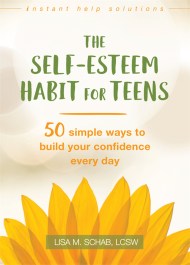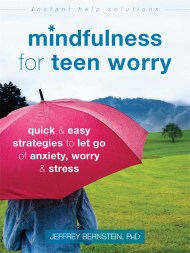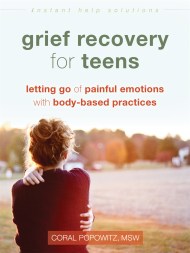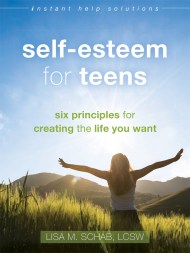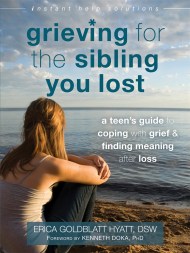Autism Playbook for Teens
On sale
25th September 2014
Price: £16.99
Genre
Medicine / Medicine: General Issues / Public Health & Preventive Medicine / Personal & Public Health / Health Psychology
Selected:
Paperback / ISBN-13: 9781626250093
Teens with autism have the potential to be excellent actors.
They are natural observers-able to study, imitate, and learn social behavior. The Autism Playbook for Teens is designed to bolster these strengths with mindfulness strategies and roleplaying scripts, while also helping teens reduce anxiety, manage emotions, be more aware in the present moment, and connect with others.
This book offers a unique, strengths-based approach to help teens with autism spectrum (including Asperger’s Syndrome) develop social skills, strengthen communication, and thrive. The activities contained in each chapter are custom-designed to work with the unique perspectives, sensory processing, neurological strengths and challenges that teens with autism bring to their encounters with the social world. By engaging in these activities, teens will gain an authentic awareness of their surroundings, leading to better social interaction that is also rewarding, interesting, and fun.
The delightful and creative activities in this book are grounded in well-documented clinical observations and current empirical studies. They also take into account the real neurological differences that exist in young people with autism, and focuses on the unique pathways needed to connect with and inspire these exceptional and fabulous teenagers.
They are natural observers-able to study, imitate, and learn social behavior. The Autism Playbook for Teens is designed to bolster these strengths with mindfulness strategies and roleplaying scripts, while also helping teens reduce anxiety, manage emotions, be more aware in the present moment, and connect with others.
This book offers a unique, strengths-based approach to help teens with autism spectrum (including Asperger’s Syndrome) develop social skills, strengthen communication, and thrive. The activities contained in each chapter are custom-designed to work with the unique perspectives, sensory processing, neurological strengths and challenges that teens with autism bring to their encounters with the social world. By engaging in these activities, teens will gain an authentic awareness of their surroundings, leading to better social interaction that is also rewarding, interesting, and fun.
The delightful and creative activities in this book are grounded in well-documented clinical observations and current empirical studies. They also take into account the real neurological differences that exist in young people with autism, and focuses on the unique pathways needed to connect with and inspire these exceptional and fabulous teenagers.
Newsletter Signup
By clicking ‘Sign Up,’ I acknowledge that I have read and agree to Hachette Book Group’s Privacy Policy and Terms of Use
Reviews
The content and style of this excellent book has the potential to significantly improve the well-being and quality of life of teenagers who have autism and their families. I endorse the theoretical model and will enthusiastically use and recommend the activities with adolescents and to my colleagues.
As the incidence of autism has risen to 1 in 66, becoming aware of autism is evolving to accepting autism as part of the human family. The challenges of the autism spectrum can be gritty and unwelcome, so changing the changeable and finding a peaceful balance is vital. The mindfulness-based activities skillfully applied by McHenry and Moog can help teens and their supporters to calm their minds and bodies, have fun, and enjoy their lives-with practice.
With their Autism Playbook for Teens, Irene McHenry and Carol Moog offer a manual for well-being for youths-not only for young people on the autism spectrum, but for others as well. The authors' experience and their understanding of adolescents on the spectrum are clearly evident from cover to cover. Written in an authentic, accessible, and sensitive way, this book radiates understanding of the struggles teens on the spectrum face every day. It provides practical yet imaginative exercises for managing emotions, relating to others, and achieving independence based on the foundation of mindfulness. The fact that this book directly addresses the teenage reader is a unique and enormously helpful feature, but it can also be very useful to parents and others who are part of the young person's world. This is the playbook many youths have needed for a long time.



